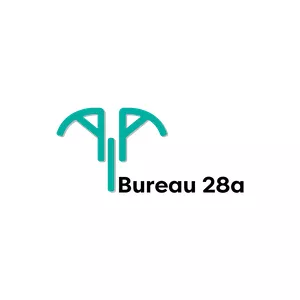RULES FOR LETTING REPUBLIC'S PORTS FOR USE
Pursuant to the Regulations of Lease of Assets of State-Owned Port Infrastructure through Selection Process, approved on 13 September 2024 by Resolution No. 421 of the Cabinet of Ministers, the assets are leased to private persons through a selection-bidding process run by a commission. The commission is formed at least 60 days before the selection consisting of a representative from each of the State Service for Property Issues (as a chairman), its relevant local division, the State Agency for Maritime and Ports, the relevant port authority, and the relevant local executive authority. The lease is managed by the State Service for Property Issues acting as a lessor.
The commission publishes terms of a lease at least 30 days before the selection, including: (i) the general conditions, (ii) the address and specifications of the asset, (iii) a bid deposit amount, and (iv) a timeframe for the winner to enter into a lease. The new regulations outline the general requirements (required licenses and permits, no bankruptcy or insolvency proceedings, no tax dues, not a risky taxpayer, and no convictions of a corruption, cybercrimes, terrorism, financing terrorism, or money laundering in the past five years) and specific to an asset (a professional experience, financial capacity, technical capability, and availability of workforce).
Participants must submit the following documents: (a) an application, (b) proof of bid deposit payment, a ten percent of the monthly starting lease fee, (c) a signed/sealed price proposal, (d) for individuals, copies of the tax registration certificate and identity document, for entities, copies of the state registration certificate, charter, and extract from the state registry, (e) required licenses/permits, (f) a certificate (from the Ministry of Justice) confirming no bankruptcy or suspension of activities, (g) documents related to general and asset-specific requirements, (h) financial statements for the last fiscal year, including bank statements for the past twelve months, and (i) an instrument of representation if submitted by agent.
If there are deficiencies in the submission, the commission will so notify an applicant in three days, detailing the necessary corrections that must be made in ten days. If all issues are addressed, a notice of participation in selection will be issued in one business day. If corrections are not made, the participant will be disqualified, and the deposit will be refunded in ten calendar days.
The protocol for the winning bid is approved in three days, with a copy provided to the winner as confirmation for the lease agreement and the results being published in 15 days. The lease agreement must be finalized within 20 days of the protocol approval. Deposits from other participants are returned within ten days of the closure of the selection process.
CRITERIA FOR DETERMINING ORIGIN OF GOODS
Resolution No. 419 of 9 September 2024 of the Cabinet of Ministers amends the Rules of Application of Procurement Preference, previously approved by Resolution No. 495, dated 30 December 2023. According to the amendments, the local origin of goods submitted for public procurement must match any of the following criteria:
- goods fully produced locally, including natural resources extracted within Azerbaijan, such as from internal waters and the Caspian Sea, as well as waste and secondary raw materials (these include products made in outer space on spacecraft of the Republic);
- produced from abovementioned; and
- goods that have undergone sufficient processing in Azerbaijan, resulting in a change of at least at one of the first four digits of the code of commodity nomenclature of goods, or that acquire new characteristics through manufacturing.
If locally sourced goods are used in producing other goods, the origin of the initial materials is not considered to determine the original of a final product.
DEBT-TO-EQUITY SWAP
On 5 December 2023, Law No. 1034-VIQD introduced amendments to the Civil Code, enabling debt-to-equity swaps in specific situations. Following the amendments, where damages inflicted on third parties exceed the charter capital of:
- a limited liability company, the creditor may convert, upon the unanimous consent of shareholders, the claim into an equity and becoming a shareholder thereof; and
- a joint-stock company, the debt can be converted into an equity stake by issuing additional shares for the creditor under a closed placement, matching the amount owed, subject to the approval of at least two-thirds of the voting stockholders.
In both cases, when calculating the damages, expenses related to depreciation deductions for fixed assets are excluded.
The content of this article is intended to provide a general guide to the subject matter. Specialist advice should be sought about your specific circumstances.


